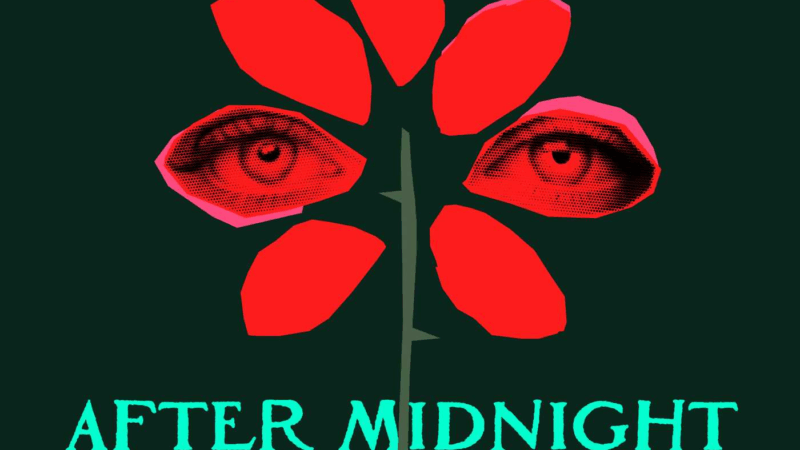You know Daphne du Maurier’s ‘Rebecca’ — but she also wrote these terrifying tales
“Last night, I dreamt I went to Manderley again.” That’s the immortal opening sentence of Rebecca, Daphne du Maurier’s 1938 masterpiece.
How often have I been lured in to both the novel and the 1940 Hitchcock film of Rebecca by that sentence? Is it an incantation? A curse? A virus that infects the imagination? Whatever mojo du Maurier conjured up in that sentence, its potency lingers. Perhaps, just by hearing it, you, too, have become spellbound.
Rebecca dominates du Maurier’s legacy, but she wrote plenty of other macabre novels and short stories in her over 40-year-career. A new collection called After Midnight gathers together 13 of her stories, appropriately introduced by long-reigning Master of Horror, Stephen King. With so much to be nervous about in this world of ours, it may seem counterintuitive for me to recommend a collection that will only stir up more fear. But think of these short stories as a kind of literary “hair of the dog” — a way to cope with existential dread by sampling it in small, potent sips.
Starting with the familiar may seem like a safer way to ease into the eerie world of du Maurier’s short stories. Not so. You may think you’re armored against the terror of “The Birds” and “Don’t Look Now” if you’ve seen the classic films they inspired, but you’d be mistaken. Sure, some of us readers may already know what happens; but, it’s the slow, sinister unwinding of the how that makes these stories freshly transfixing.
And the settings in these stories register even more vividly as malevolent characters than they do in the films. In “Don’t Look Now,” all of Venice is a “sinking” slimy, watery maze, entrapping our main character — a smug-but-disoriented vacationer who only stumbles deeper into his appointment with a death foretold. The short story of “The Birds” is set, not in Hitchcock’s Bodega Bay, but in du Maurier’s home turf of Cornwall. Like the Brontë sisters, whose Gothic legacy she carried forward explicitly in Rebecca, du Maurier was a master of describing weather: imbuing clouds, wind, rain — Mother Nature herself — with a sinister consciousness.
“The Birds” opens in autumn with a sudden drop in temperature; two days later, we’re told, that “at barely three o’clock, a kind of darkness had already come, the sky sullen, heavy, colorless like salt.” The birds begin to amass, growing more sentient by the hour. Here’s the moment where our main character, a farmhand named Nat Hocken, realizes that he’s not alone on the beach:
He looked out to sea and watched the crested breakers, combing green. They rose stiffly, curled, and broke again, …
Then he saw them. The gulls. Out there, riding the seas.What he had thought at first to be the white caps of the waves were gulls. Hundreds, thousands, tens of thousands … They rose and fell in the trough of the seas, heads to the wind, like a mighty fleet at anchor, waiting on the tide.
The haywire weather in “The Birds” gives it a weird up-to-date-ness. The same can be said of another story here — a standout — called “The Breakthrough.” In that tale, our narrator, a young engineer named Stephen, is coerced into accepting a transfer to a top-secret barbed wire facility on the coast. (In a du Maurier tale, a change of locale is always bad news.)
When Stephen arrives at the facility, he’s initiated into the secrets of an AI-type machine called Charon Three that’s designed with a built-in storage unit to entrap the life force that “leaves the body on the point of death.” As the head scientist (perhaps, mad?) explains to Stephen, “If we succeed … [w]e shall have the answer at last to the intolerable futility of death.”
“The Breakthrough” turns out to be indelibly mournful more than terrifying. Taken together, the 13 tales in After Midnight offer every shade of eerie. Du Maurier’s best stories here also affirm that art remains one of the few reliable forms of immortality.
Mexican army kills leader of Jalisco New Generation Cartel, official says
The Mexican army killed the leader of the powerful Jalisco New Generation Cartel, Nemesio Rubén Oseguera Cervantes, "El Mencho," in an operation Sunday, a federal official said.
Ukraine’s combat amputees cling to hope as a weapon of war
Along with a growing number of war-wounded amputees, Mykhailo Varvarych and Iryna Botvynska are navigating an altered destiny after Varvarych lost both his legs during the Russian invasion.
University students hold new protests in Iran around memorials for those killed
Iran's state news agency said students protested at five universities in the capital, Tehran, and one in the city of Mashhad on Sunday.
Pakistan claims to have killed at least 70 militants in strikes along Afghan border
Pakistan's military killed at least 70 militants in strikes along the border with Afghanistan early Sunday, the deputy interior minister said.
Team USA faces tough Canadian squad in Olympic gold medal hockey game
In the first Olympics with stars of the NHL competing in over a decade, a talent-packed Team USA faces a tough test against Canada.
PHOTOS: Your car has a lot to say about who you are
Photographer Martin Roemer visited 22 countries — from the U.S. to Senegal to India — to show how our identities are connected to our mode of transportation.






